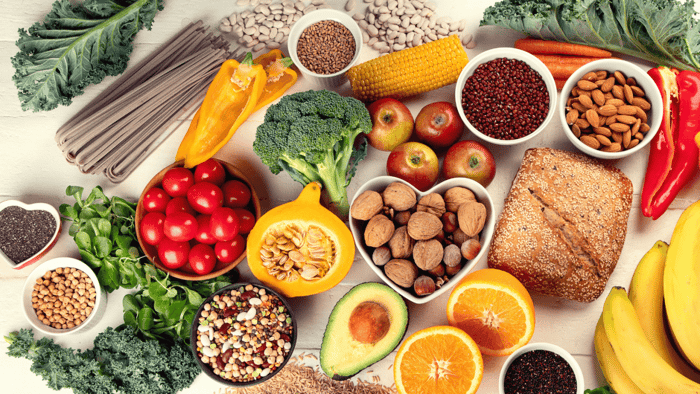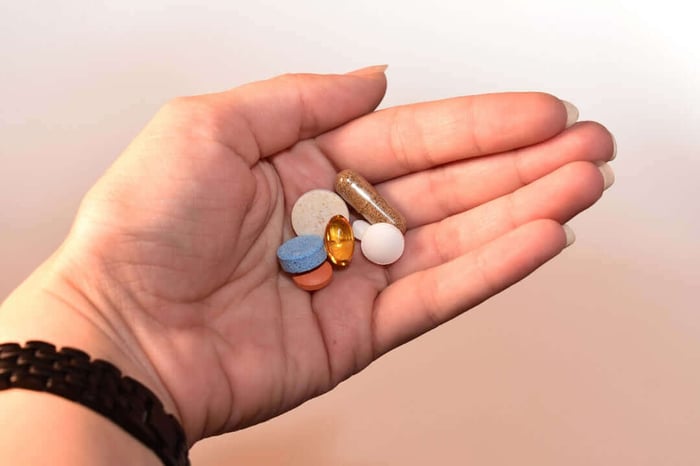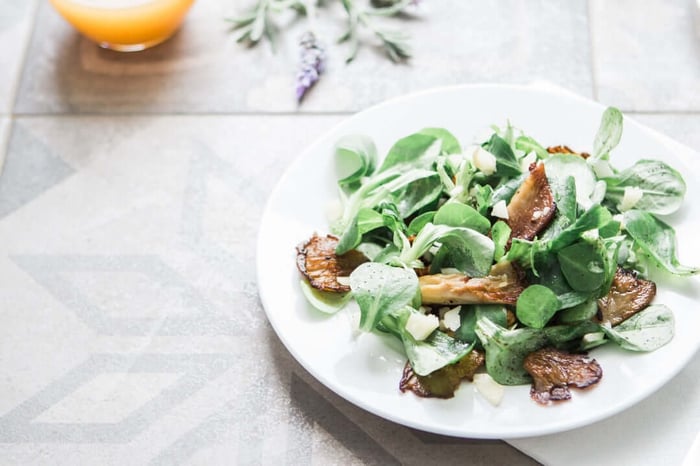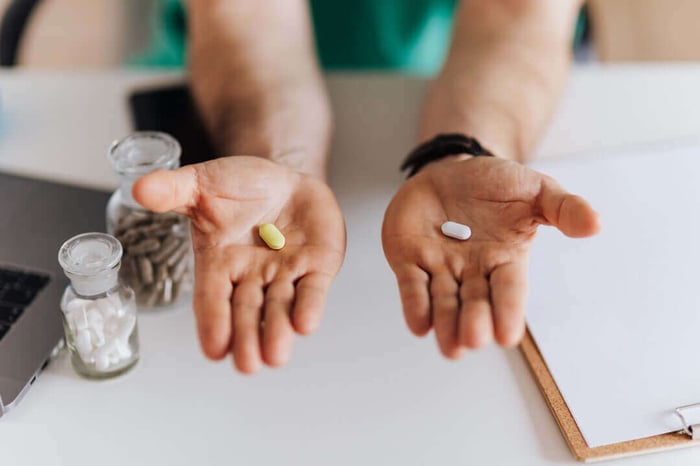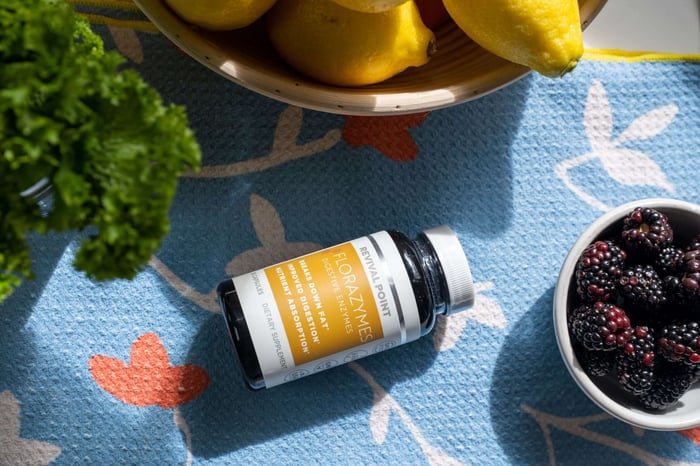You’ve most likely heard of prebiotic fiber. But is the fiber you find in fruits and vegetables the same thing? Do you need a prebiotic supplement… Or is your food enough to boost your gut health?
Let’s get into it and figure out the ultimate question: Is fiber a prebiotic?
What Is Fiber?
Fiber—also called dietary fiber—is a plant carbohydrate that’s found in many foods. It comes in two forms: soluble and insoluble fiber.
Its key characteristic is that it can’t be absorbed by the body, so it passes through the digestive system quite intact.
This allows it to bind with your waste materials when it reaches the intestine. Soluble fiber dissolves in water in the body and helps to form the stool. Insoluble fiber helps the stool to keep its shape and move through the intestine to be expelled.
What Are Prebiotics?
Prebiotics are plant carbohydrates that serve as food for your gut bacteria. Your body can’t make these fibers, so you have to get them from the food you eat.
To maintain a healthy gut, you need both probiotics and prebiotics. Probiotics are the healthy bacteria found in the gut, and prebiotics feed them and keep them strong.
Prebiotics ferment in the gut and produce short-chain fatty acids, which perform many functions in the gut (1) but also help to boost your immune system and overall health.

Is Fiber a Prebiotic?
Now this is where it gets a little tricky. Prebiotics and dietary fibers (2) are often referred to as the same thing, but the truth is, that’s not quite accurate.
Here’s the best way to describe it:
- Some prebiotics are dietary fibers.
- Not all dietary fibers are prebiotics.
Here’s a quick illustration that may explain it best:
As you can see, both dietary fiber and prebiotics are their own categories. But in the middle, there’s an overlap where some of them fall into both categories.
So, the tricky thing here is that you can’t just “eat more fiber” and assume that your body is getting more prebiotics.
Sources of Fiber and Prebiotics
There are two ways you can get more fiber and more prebiotics into your body. One, in the food that you eat. Two, using supplements.
Food is always first prize, but in some cases it doesn’t provide enough. At this point, with a doctor’s recommendation, you should consider a supplement.
Foods
Prebiotic foods and fiber-rich foods overlap to a certain extent. As you know should understand, not all foods that are high in fiber will necessarily contain prebiotic fibers. But, those foods that are high in prebiotic fiber will most likely contain a good bit of dietary fiber too.
To get the best of both worlds and reap the best health benefits, we recommend focusing on adding these particular foods to your diet:
- Jerusalem artichokes: excellent source of prebiotics from inulin.
- Garlic: adds flavor, packs a prebiotic punch, and keeps vampires away!
- Onions: Can go with almost anything, loaded with prebiotic fiber.
- Unripe bananas: High in fiber and can reduce spikes in blood sugar.
- Legumes: beans, peas, and lentils in particular.
- Fruits: Apples, citrus, avocado, raspberries, peaches, and fruit skins.
- Vegetables: Broccoli, cauliflower, spinach, green beans, and most others!
- Whole grains: Whole grain pasta, rice, and breads.
Supplements
You can find both fiber supplements and prebiotic supplements. As you’ll understand, they are different things, although in some cases, a fiber supplement may actually contain prebiotic fiber… And a prebiotic supplement may provide regular fiber as well.
We recommend only going onto a prebiotic supplement if it’s been recommended by your doctor. If you go too heavy on the prebiotics, you could inadvertently cause an overgrowth of bacteria in the gut… And even too much good bacteria can be a bad thing!

The Best Synbiotic Combo: Click Here Now to Check It Out
How Much Do You Need?
Women should consume between 21 and 25 grams of fiber per day. Men should be getting 30 to 38 grams each day (3). If you’re eating fiber-rich foods that are also high in prebiotics, chances are you’re getting enough prebiotics.
In Summary
So, is fiber a prebiotic? Yes and no… But maybe. Some dietary fibers are prebiotics, and some aren’t. In the same vein, some prebiotics are dietary fibers, and some aren’t.
If you’re worried about which one you should be taking, it may be a good idea to check with your doctor. In many cases, taking both can be helpful, but to avoid potentially overdoing it, we highly recommend getting medical advice first!
$54.95
Floraboost is combination of all-natural sources of prebiotic fiber which are the best shown by science to help support good microbe strains in the digestive system as well as reduce cravings. Prebiotics "feed" good probiotic bacteria in the gut. With… read more
Floraboost Prebiotic Powder
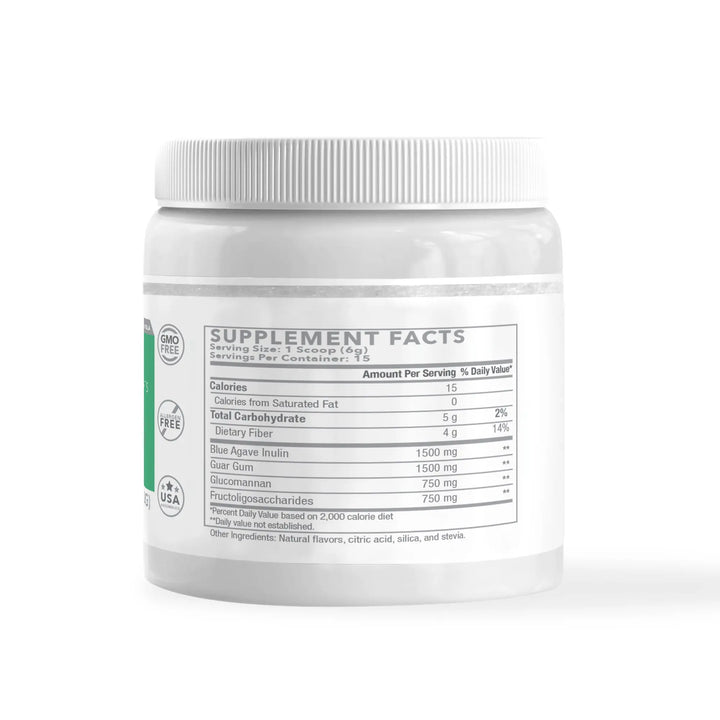
$69.95

